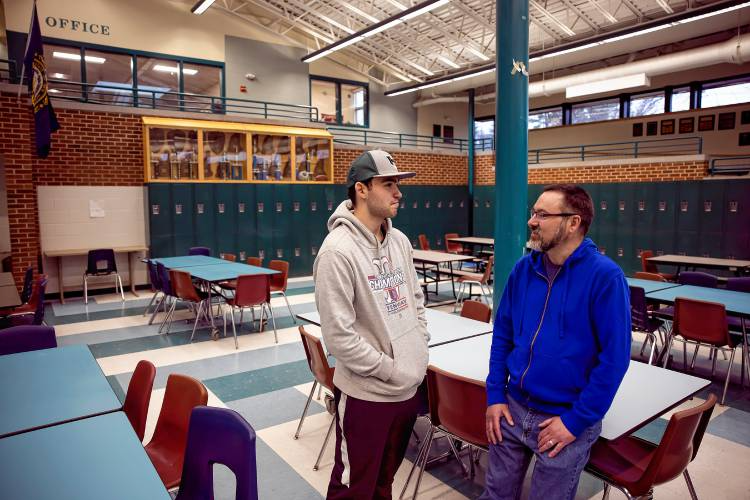A long-awaited effort to strengthen awareness of the Student Rights, Rules and Responsibilities (SRRRs) in residence halls and the comeback of student organization concepts led the way in the Student Senate’s fifth meeting – and its last October gathering – of Session 41.
Following a week-long postponement, Student Body Vice President Kelsey Crowley, with the help of Judicial Affairs Chair Maria Koch, reintroduced Resolution 41.03 – entitled “SRRR Did You Know Reminders” – which urged Residential Life to “create and disseminate” an informative poster detailing key portions of the SRRRs – and where to locate the full version – to all resident assistants (RAs) and hall directors for students to view and review. It also requested that the poster be shared with the Judicial Affairs Council for “input and feedback” prior to distribution.
The motion argued that first-year students receive “minimum education” about the SRRRs during their “Wildcat Welcome Days” at the beginning of the year, and that four of the 28 residence halls on campus dedicate themselves exclusively to first-year students, a total of “at least” 930 students in those four alone.
The four halls in question include Alexander Hall, Christensen Hall, Lord Hall and Williamson Hall. Alexander Hall is located in the “Valley” of campus neighbored by the Mills apartments, and by Hetzel and Fairchild Halls; Christensen and Williamson Halls can be found in the “Timbers” region across from Philbrook Dining Hall; and Lord Hall sits in the “Hills” region situated between the Adams Tower, McLaughlin Hall and Jessie Doe Hall.
The motion also pointed to trends in university arrest rates, explaining how “most UNH Police arrests are of underclassmen, which include freshmen and sophomores,” and citing, for example, how Durham and UNH Police made 162 arrests in the first six weeks of school, 73 of them belonging to people under 21 years of age.
In addition, the motion stated that RAs receive information sheets about the SRRRs from Residential Life but are not required to post them in residence halls, despite them having been “posted in the past and…supported by Residential Life.”
In her explanation of the resolution, Crowley told the body that feedback and support from members of Residential Life staff over the previous summer – namedropping Residential Life Director Ruth Abelmann as an example – helped the motion get off the ground despite its one-week delay.
“They told us that they really like this idea and that it hasn’t been happening the past two years,” she said. “I think this going to be really effective and help out a lot of students.”
When the conversation on R.41.03 opened up to questions, Campus Structure Council Chair Logan Stevens led the way with a total of five inquires over the course of 10 minutes as he inspected, for instance, how many UNH students accounted for the cited 162 arrests made by Durham and UNH Police, which Crowley could not confirm at the time. Stevens also asked Crowley what counted as “key provisions” of the SRRRs to be included on the posters, as well as who would have the final say on the poster’s content.
“That’s something that’s been discussed in Judicial Affairs,” the vice president replied, explaining that feedback from students, representatives from Community Standards and various residence halls, and other participants in that council determined what “problems they’ve had the most in the past [sic] that they thought would be the most beneficial [to address] to students and the ones that they send out to their RAs.”
“And I think it’s really good that it doesn’t specify exactly what the ‘key’ points are because it’s going to vary year to year with what’s relevant,” Student Body President Allison MacPhee added, “and Kelsey wants this to be a sustainable resolution that always impacts people, and that way they can tailor it to what’s going on in a particular year.”
Striking a similar vibe, Stevens later proposed a friendly amendment to the motion encouraging and allowing for annual revisions of the posters; it was seconded and passed without objection.
R.41.03 ultimately passed the body unanimously.
On the subject of resolutions, the Senate also introduced two new motions Sunday; the former – R.41.11, entitled “Remembering Doctor Julie Williams” and introduced by MacPhee, Crowley and Academic Affairs Council Chair Jennifer Hargenrader – urged the UNH community to join Student Senate in honoring the late Senior Vice Provost for Engagement and Faculty Development Julie Williams, whose death was announced by Provost Wayne Jones on Oct. 2; it also urged the “continuation of Doctor Julie Williams’ initiatives and to remember her legacy for years to come.”
Williams’ accomplishments, per the motion, included her efforts to help create programs such as the Writing Academy, Pathway to Professorship, New Faculty Orientation, and the Research and Engagement Academy, as well as building UNH’s first “long-term partnership” with Howard University in Washington, D.C., that has awarded over $8 million in “extramural funding” and nationwide recognition from “federal agency partners,” among other achievements.
The latter motion – R.41.12, entitled “Urging American Sign Language to Fulfill Foreign Language Requirements” and brought to the floor by Sen. Yuri Makar (Peterson) – urged the Faculty Senate and UNH administration to implement a previous Student Senate resolution and allow American Sign Language (ASL) to fulfill the language requirement for all bachelor of arts (BA) programs, as well as encourage UNH to “express its support for the deaf and hard-of-hearing communities through collaborative programs and events.”
Sunday’s motion specifically cited R.40.31 from last session, which urged the Faculty Senate and UNH to allow all BA programs to accept ASL toward their foreign language requirements and stated that learning a new language creates a “positive impact regarding the acceptance of different cultures,” and how the deaf community possesses “an extensive culture that is distinct within the mainstream culture of the United States.”
In addition, despite American Sign Language’s lack of status as a “universal language,” Sunday’s motion argued that “the culture…contained within using the language promotes unity with others in the deaf community.”
R.41.12 also cited an apparent lack of progress in its mission, stating that, as of Fall 2019, only four BA programs permit ASL to fulfill their foreign language requirements.
Both resolutions, following their introductions, were remanded to the Academic Affairs Council for further review.
Beyond resolutions, Sunday’s meeting also began the process of reviewing FY21 Student Activity Fee Organization (SAFO) concepts, in which 10 major student organizations submitted their mission statements and objectives in the hopes of later securing funding for next year’s budgets from the Student Activity Fee Committee (SAFC) later in the session. The 10 organizations represented on Sunday included the Campus Activities Board (CAB), Diversity Support Coalition (DSC), Mask and Dagger Dramatic Society, Meeple Table Gaming Syndicate (the newest organization eligible for SAFO approval), Memorial Union Student Organization (MUSO), New Hampshire Outing Club (NHOC), Organic Garden Club, Student Committee on Popular Entertainment (SCOPE), Slow Food UNH, The New Hampshire, and WUNH-FM.
Led by SAFC Chair Gareth Jones, the process of approving concepts involved each organization’s business manager – or their proxy in the case of an absence – explaining any revisions to their concept from the previous year, along with the general objectives of the organization and how they achieve them.
Jones defined a SAFO as a student organization with a “set” budget through SAFC, who is required to submit new budgets and concepts each year during the Senate’s budgeting “season” – ranging from mid-October to mid-November – with the ability to “know that they have that money set aside for them in the SAF,” as opposed to having to pull from the Organization Resource Fund, which is responsible for funding all non-SAFO student organizations on campus.
Prior to the concepts themselves, Speaker Nicholas LaCourse alerted the body that the concepts could only be approved “as one bulk item,” meaning that concepts could not be approved or failed individually; thus, if one concept were to fail, the entire bill would be returned to SAFC for further review with feedback.
Concerning the concepts themselves, all 10 organizations presented similar or near-identical concepts to ones they had presented in previous years, save for minor revisions to update obsolete content and rewording to better showcase the organization’s mission and opportunities it offers to the community.
The concepts bill ultimately passed the Senate unanimously.
In other business, a bill moved by Deputy Speaker and Parliamentarian David Cerullo oversaw significant alterations to the membership of the body’s councils due to a lack of attendance, with several names visibly crossed out in the digital version of the agenda. Encouraged by bylaws requiring senators to participate in a council for a set number of hours a week, several members followed suit by adding their name to a new council or returning to a previous council the bill kicked them off of due to attendance records, which Executive Officer Annah Santarosa admitted suffered from inaccuracies and imperfections due to human error. The bill passed the Senate unanimously.
Meanwhile, no new Senators were approved to the body on Sunday, while former Sen. Sergio John Wynne-Marquez (Upper Quad 2) was unanimously removed from the body; no official reason was given for his departure.
In addition, the historian’s office found its third official occupant on Sunday, as Sen. Georgia Bunnell was approved unanimously for the post following her nomination in a bill led by Speaker LaCourse. By contrast, a bill seeking the approval of this session’s senior financial advisor was postponed due to the absence of its author, Student Trustee Cailee Griffin.
Although tacked onto “other business,” a bill led by MacPhee similarly appointed Community Development Chair Elza Brechbuhl to President James W. Dean, Jr.’s, Disadvantaged Students Meeting (overseen by the Community Development Council) and Nelson Thomas to the Bookstore Vendor Committee, responsible to the Academic Affairs Council, following unanimous Senate approval.
Following Brechbuhl’s and Thomas’ appointments, the Senate ultimately adjourned at 7:21 p.m.






















